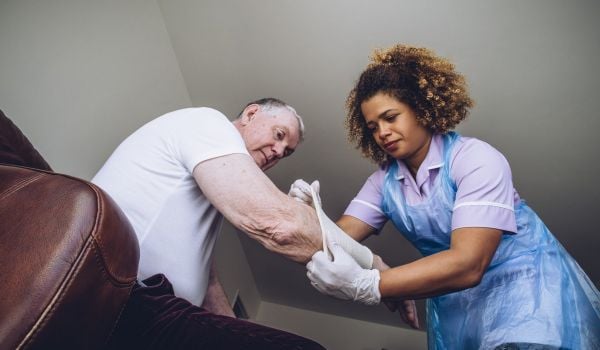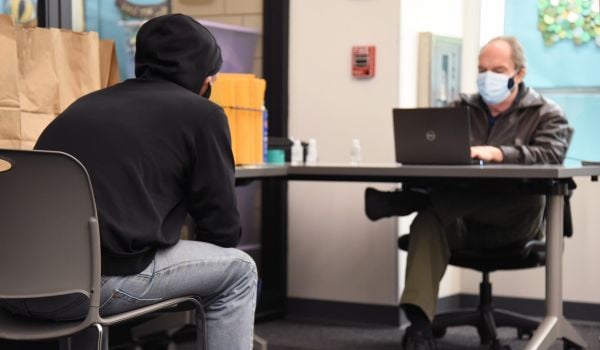Food Service Workers Unwittingly Fund The Lobbyists That Suppress Their Wages
Restaurant and food service workers are often mandated to pay for a basic online class in food safety from a company called ServSafe – which, as the New York Times reports, is actually a fundraising branch of the National Restaurant Association. The lobbying group has long fought against increasing the minimum wage and fought for maintaining the subminimum wage for tipped workers. “I’m sitting up here working hard, paying this money so that I can work this job, so I can provide for my family,” one line cook and labor organizer told the Times. “And I’m giving y’all money so y’all can go against me?”
Incarcerated Workers In Washington Could Be Paid Minimum Wage Under Proposal
A proposal in the Washington State legislature, introduced by formerly incarcerated lawmaker Rep. Tarra Simmons as the “Real Labor, Real Wages Act,” seeks to provide the state minimum wage of $15.74 an hour to people working a job inside prisons in Washington state.
“I think it’s really important, both for moral reasons and knowing that this practice is part of the slavery loophole, but also to set people up for success upon reentry, so they can save money for housing and transportation when they come home,” Simmons told KUOW News. “Also, while they’re currently incarcerated, they can still pay their child support and their victim restitution.”
Currently, incarcerated people working in Washington prisons’ kitchens, laundry facilities and other roles can only be paid up to $2.70 an hour. Simmons told The Olympian that while incarcerated, she was forced to work a graveyard shift role for just 42 cents an hour; if she did not do so, Simmons said, she could have faced a major infraction, been placed in solitary confinement, or lost visitation time with her children.
Community Reinvestment Act Failed To Improve Consumer Borrowing
A new report from the Federal Bank of New York finds that the federal Community Reinvestment Act – a 1977 law enacted to combat redlining by ensuring that banks invested in the communities in which they raised deposits – did not have a statistically significant impact on consumers’ access to credit.
“Our research thus provides empirical support for recent calls to expand the CRA to the nonbank sector and for regulators’ concern with loan ‘churning’ or repeated purchases by banks of CRA-eligible loans as a form of CRA compliance,” the report concludes. “Limiting credit for repeatedly purchased and then resold CRA-eligible loans might mitigate this form of ineffective compliance and could help the CRA to better achieve its goal of ensuring that depository institutions serve the needs of all communities in which they operate.”
America Abandons Its Poorest Patients Through Hospital Privatization
A National Bureau of Economic Research working paper finds that in the years after a government-run hospital is privatized, full-time hospital staff falls by an average of 8% and physicians employed fall by about 30%.
These hospitals also admit an average of 8.5% fewer patients – and 15% fewer Medicaid patients. With one in nine Americans now being covered by Medicaid, it’s a dire concern.
“In theory, fewer Medicaid patients could mean simply that there are fewer unnecessary hospitalizations,” Vox’s Dylan Scott explains. When researchers analyzed patient volume in the area after a hospital was privatized, “they found patients with Medicare or private insurance were absorbed by the neighboring hospitals — but Medicaid admissions dropped across the region.” Medicaid patients, in short, lost access to health care.
This article is part of The Bottom Line, a series exploring scalable solutions for problems related to affordability, inclusive economic growth and access to capital. Click here to subscribe to our Bottom Line newsletter.
Aysha Khan is the managing editor at Next City.
Follow Aysha .(JavaScript must be enabled to view this email address)

















